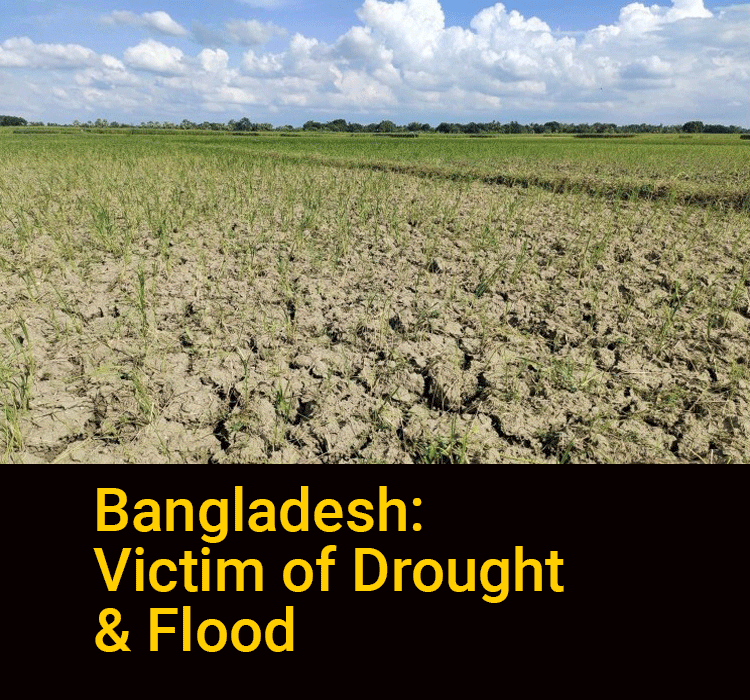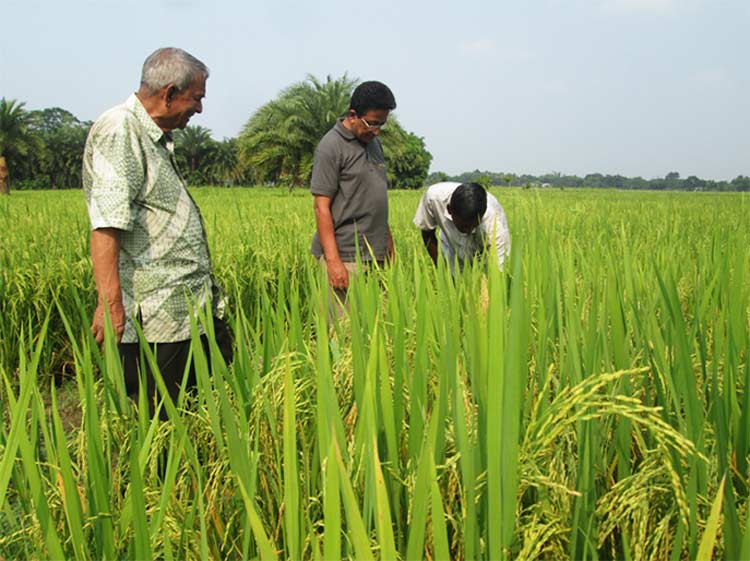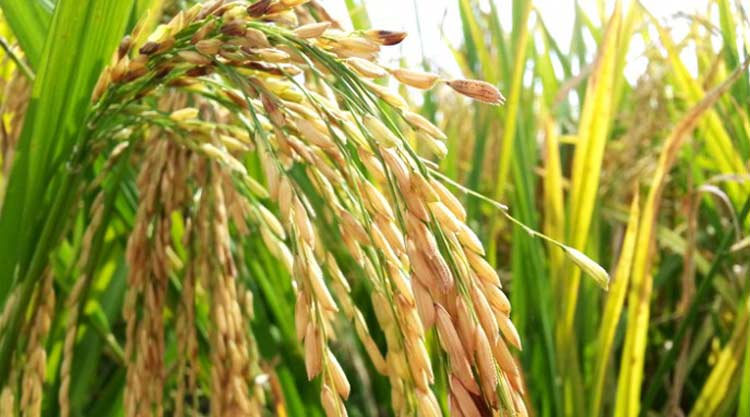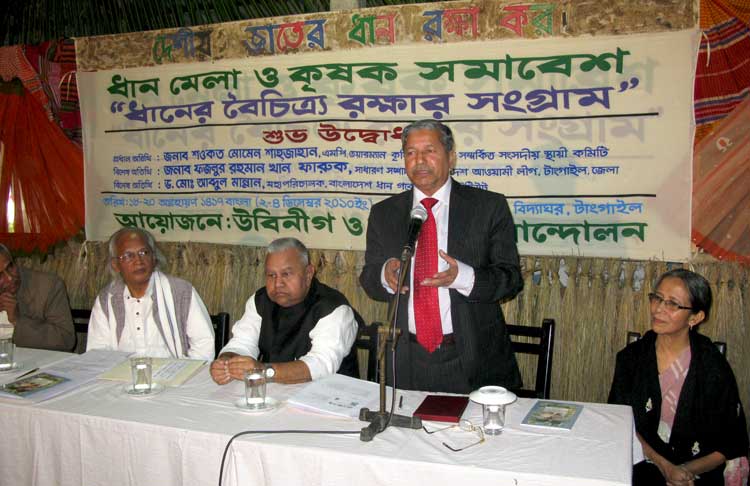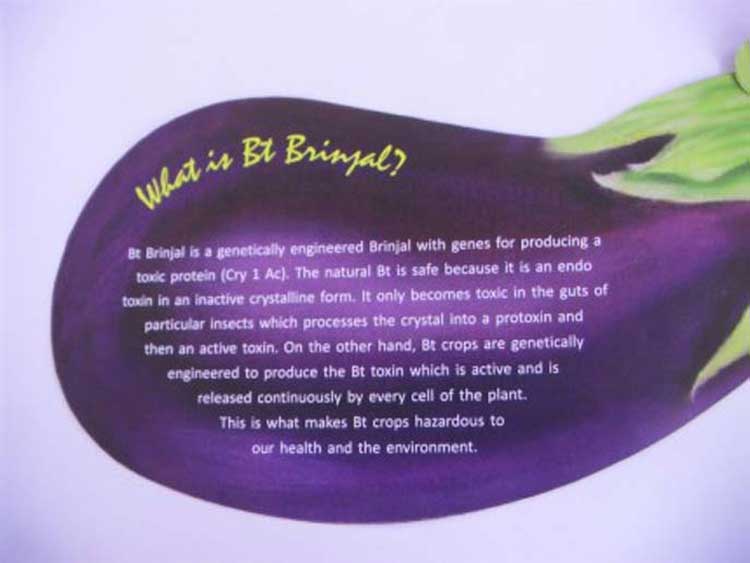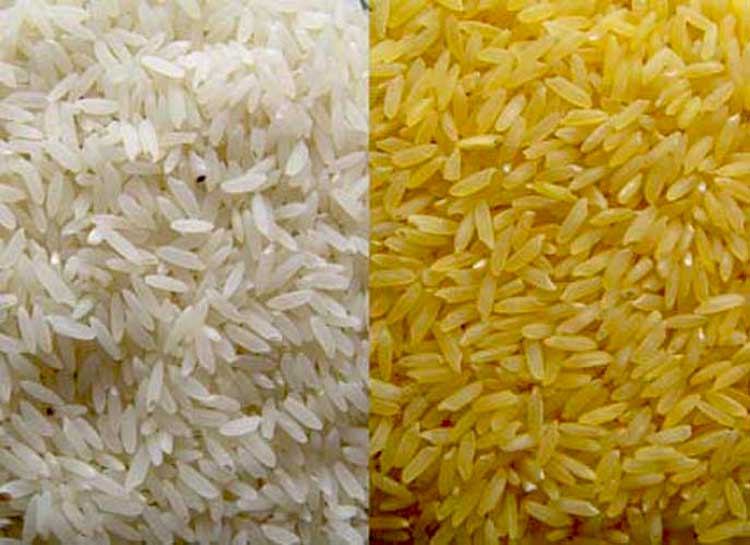Wisdom and sense of beauty of the names of local rice varieties
Thousands of rice varieties were being cultivated in Bangladesh in the past. Even in early 1909 many thousands of varieties of rice were being grown. Humble beginning of rice research was initiated in then Dhaka center of the Bengal Department of Agriculture in 1909 under the leadership of Dr. Hector. He reported that 18000 local varieties of rice were being grown in aus, aman and boro seasons. Again in 1982, a total of 12,487 varieties of local rice were documented through a survey conducted in 359 unions, 433 thanas in 20 districts by the Bangladesh Rice Research Institute (BRRI). It is really surprising that such a rich treasure of ric (Read More)
Aman Paddy, 2022 Farmers Horrified for lack of Rain
There was 68% less rain than normal this year in the rainy season (July-August), mentioned Mohammad Abdul Mannan, Meteorologist, Bangladesh Meteorological Department.
Worst Drought and Heat Wave in the Rainy Season this Year (2022) in Bangladesh which is the Worst Scenario in the Last 41 Years:
The rainfall recorded in July this year (2022), was least rainfall during this season in the last 41 years, mentioned Mohammad Abdul Mannan, Meteorologist Bangladesh Meteorological Department. There was less than 50% of rainfall in this time this year; normally it is the peak period of rainfall. Least rainfall in 41 years from 1980-202 (Read More)
Cultivation of aman rice: second attempt to maintain seed
Most of the fields of aman rice were submerged due to flood in Delduar upazila, Tangail district. Not only the local variety but also High Yielding Varieties (HYV) including BR 11, BINA 7 and BRRI dhan 49 were also damaged. Even then the farmers did not lag behind. The farmers had again transplanted aman rice seedlings those who could manage seedlings. However, this task was not so easy. The story of some of the farmers are presented as follows:
Salam Mia: I was very much upset when my rice in the field was damaged by flood, not only due to loss of crop but also the seed for sowing next year, mentioned Salam Mia of Kasba Atia villag (Read More)
Successful mixed cropping of rice with Jute
Krishnapur is a village on the bank of the river Khalishadanga. It is in Nagor Union, Upazila: Borigram, District: Natore. In the dim and distant past this village was proudly rich in genetic resources. However, the farmers were almost exhausted of their precious possession of land races in the wave of pursuing modern agricultural practices. Recently they were oriented to Nayakrishi Andolon (new agricultural movement).They are now striving to regain their lost seed and genetic resources. The farmers in Krishnapur village have been practicing Nayakrishi for last ten years. The genial flow of water in the Khalishadanga river and mild siltati (Read More)
Submergence Tolerant Rice versus Broadcast Aman Rice
A Report on” innovative rice farming in the north” was published in the Daily Star on 11 February 2015. It was mentioned in this report “people in the low lying districts of northern Bangladesh suffered from a devastating flood, submerging traditional Aman rice varieties for 15 days, causing full or partial damage”.
The information about the flood is a fact but the last part of the above sentence “submerging traditional Aman rice varieties for 15 days, causing full or partial damage” has created a space for debate.
It is well known that the life and livelihood of the people of the norther (Read More)
Struggle Conserving Local Rice Varieties
In the month of Agrahayan, the eighth month of Bengali calendar, (early December) over 500 Nayakrishi farmers from 19 districts got together in Tangail to exhibit the rice varieties in their own collection and to discuss the issues that has caused threats to the preservation of rice varieties. It was a festival organized by UBINIG and Nayakrishi Andolon held during December 2 – 4, 2010 in Bishnupur village of Tangail. Climate change and natural disasters are being used as an excuse to introduce hybri (Read More)
BRRI Celebrates 40 years
BRRI 40 & IRRI 50 years: We finally get controversial GE rice!!
Ten years younger than the International Rice Research Institute (IRRI) the Bangladesh Rice Research Institute (BRRI) has observed its 40th founding anniversary in Gazipur, Dhaka on October 1st, 2010. The institution even had a birthday cake cut to celebrate its forty years. BRRI officials had a colourful procession and discussion sessions to mark the achievements of the institution during last 40 years since it was established in 1970.
On 30th September, 2 (Read More)
Corporate control over rice
IRRI announces bad news: introduction of Golden Rice in Bangladesh
While the farmers organisations around Asia were demanding that 50 years of International Rice Research Institute (IRRI) is Enough, and during this time it has contributed more to the destruction of our rice diversity than to increase it; it is heartening to see that in Bangladesh it was celebrated with much high importance with the Prime Minister Sheikh Hasina inaugurating the ceremony held on 14 July, 2010. The celebration was marked by an event attended by ar (Read More)

